Violence and strife are wracking the South American nation because of a struggle over executive power. Here is what you should know about the current Venezuela presidential crisis.
What’s going on in Venezuela?
In May 2018, President Nicolás Maduro was reelected in what almost all outside observers claim was a rigged election. He was officially sworn on January 10, 2019. Two weeks later, the head of the Venezuelan legislature, Juan Guaidó, declared himself to be interim president.
The struggle has led to mass protests and public clashes by supporters for both sides. Guaidó urged Venezuelans to go on strike and join him on the streets until Maduro is removed. Demonstrations have taken place in the capital city of Caracas as well as all in all 23 states of Venezuela.
On April 30, Guaidó appeared in a video surrounded by men in uniform talking about the “final phase” of ending Maduro’s rule. Venezuelan authorities called this a coup attempt. On Thursday, Maduro called on the armed forces to defeat “any coup plotter” while Guaidó called for a military uprising.
Over the past month, there have been two dozen deaths and an unknown number of injuries related to the protests.
Who is Nicolás Maduro?
Maduro is a former trade union leader who was first elected to the Venezuelan legislature in 2000. In the mid-2000s he became a favorite of then-President Hugo Chávez, and was appointed as minister of foreign affairs (2006–13) and vice president of Venezuela (2012–13).
When Chávez died in March 2013, Maduro took over the office of the presidency and has held it ever since. Using the financial crisis as a pretext, Maduro had the legislature give him the power to rule by decree, providing him with near-dictatorial powers of the country.
Currently, Maduro is allies with and supported by China, Cuba, Iran, Russia, and Syria.
Who is Juan Guaidó?
Guaidó is an US-educated politician who was a founding member of the socialist Popular Will political party, which was created in 2009. He was elected to a full seat in the legislature in 2015, was made majority leader in 2018, and sworn in as president of the National Assembly in January 2019.
What is Guaidó’s claim to the presidency?
Guaidó bases his claims to be acting president on an interpretation of Article 233 of the Constitution of Venezuela, which states in part,
The President of the Republic shall become permanently unavailable to serve by reason of any of the following events: death; resignation; removal from office by decision of the Supreme Tribunal of Justice; permanent physical or mental disability certified by a medical board designated by the Supreme Tribunal of Justice with the approval of the National Assembly; abandonment of his position, duly declared by the National Assembly; and recall by popular vote.
When an elected President becomes permanently unavailable to serve prior to his inauguration, a new election by universal suffrage and direct ballot shall be held within 30 consecutive days. Pending election and inauguration of the new President, the President of the National Assembly shall take charge of the Presidency of the Republic.
Guaidó contends that since Maduro is a “usurper,” the presidency is therefore vacant. The country’s Supreme Court—consisting of Maduro loyalists—rejects this claim. But the Supreme Tribunal of Justice in exile support Guaidó’s interpretation.
Guaidó’s claim to the presidency is supported by 54 countries, including the US and most of Western Europe.
What is the reaction by the United States and the international community?
When asked on Wednesday if the US support could include sending military troops, Secretary of State Mike Pompeo said, “The president has been crystal clear and incredibly consistent. Military action is possible. If that’s what’s required, that’s what the United States will do.” That same day Russian Foreign Minister Sergei Lavrov told Sec. Pompeo by phone that further “aggressive steps” in Venezuela would be fraught with the gravest consequences. Lavrov also said that US “interference” in Venezuela’s internal affairs was a breach of international law
An emergency meeting of the Lima Group of Latin American countries is also scheduled for today.
The UN Human Rights Office says it is “extremely worried by reports of excessive use of force by security forces against demonstrators across Venezuela that has allegedly resulted in dozens injured.”
“Many have also reportedly been detained,” says the UN. “In light of the mass protests planned for today, we call on all sides to show maximum restraint and on the authorities to respect the right to peaceful assembly. We also warn against the use of language inciting people to violence.”
Joe Carter is an adjunct professor of journalism at Patrick Henry College, an editor for several organizations, and the author of the NIV Lifehacks Bible.
Photo Credit: Juan Guiadó speaking at a rally on April 30, 2019. Screenshot of Voice of America Video.
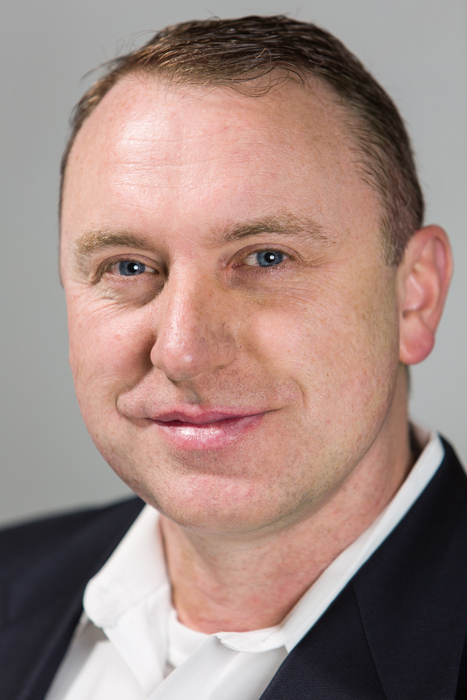
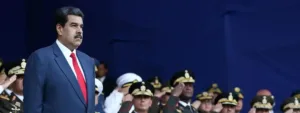
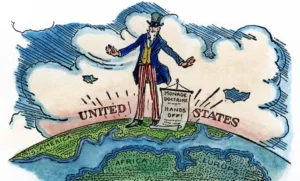
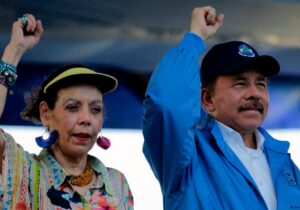
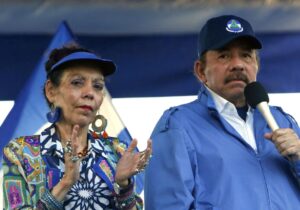
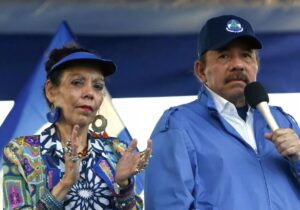

 Live in the DC area? Sign-up for Providence's in-person events list!
Live in the DC area? Sign-up for Providence's in-person events list!